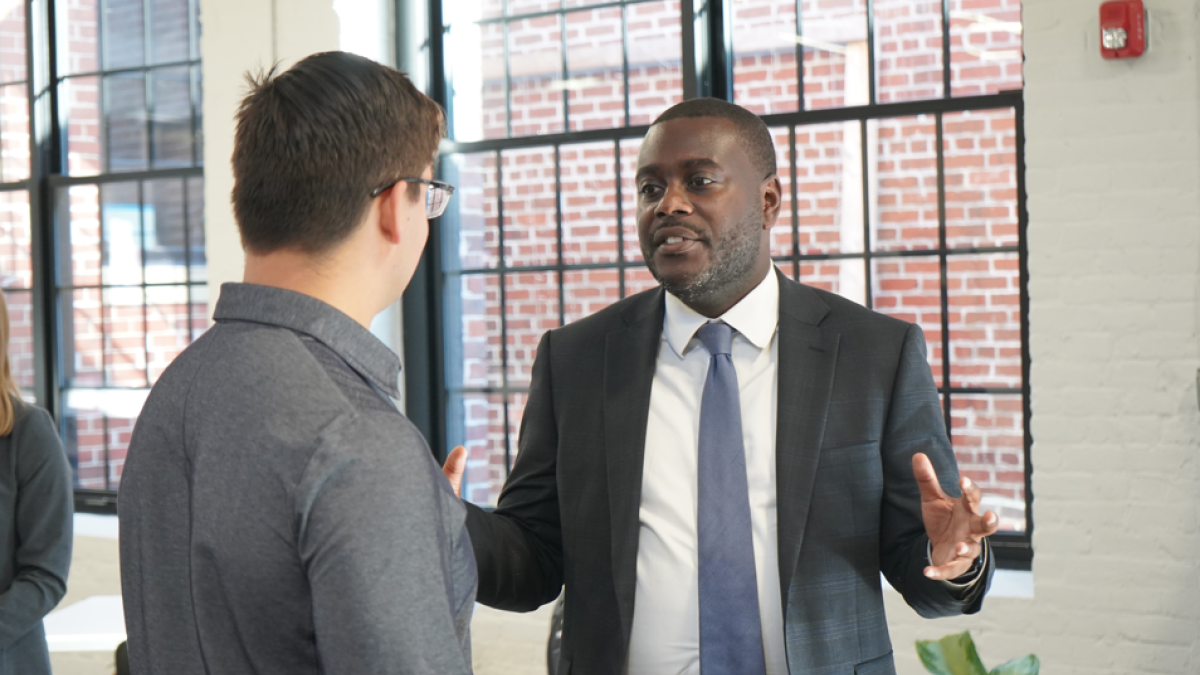Providence Journal: What's the 'blue economy' and why does it matter to RI? A Q&A with U.S. Rep. Gabe Amo

With the presidential election rapidly approaching, U.S. Rep. Gabe Amo has been busy traveling to battleground states to stump for fellow Democrat, Vice President Kamala Harris.
Back home in Rhode Island, he recently took to the road again – this time to highlight the state's "blue economy."
In between tour stops at Portsmouth's VATN Systems, which makes autonomous underwater vehicles, and Flux Marine, a Bristol-based manufacturer of electric outboard motors, Amo sat down with The Providence Journal to explain what that means – and why it's important for Rhode Island.
"I hope that every Rhode Islander understands that it's part of our history, but it's also part of our future," he said.
Amo represents Rhode Island's 1st Congressional District. His remarks were lightly edited for length and clarity.
Q: What is the 'blue economy'?
A: It captures a lot of things that we've been doing in Rhode Island for a long time, but is really trying to bring focus to how we approach it, and how we invest in it. So it's everything from shipbuilding to tourism to aquaculture to our maritime and Navy history to offshore wind. Things that are about the connectivity between our productive capacity and the Narragansett Bay and the ocean. That is, in effect, the blue economy.
Q: So you have offshore wind, nuclear submarines, sailboats, oyster farms – do these industries have anything in common besides relying on the ocean?
A: They're actually quite interdisciplinary. All the things you just described, you know what they all have in common? Boats. Someone's got to make those boats. When you think about the labor that's required, we have people in labor unions who serve in all those functions, from the folks from UAW who represent people at Electric Boat to the electrical workers who do all the work around our wind turbines.
So there's connective tissue in both the inputs, and how they affect our shoreline. They have to share space. They're occupying similar areas: You can be down in Portsmouth at an underwater drone facility and have Hinckley Yachts right by, and then have NOAA's new Atlantic facility right next to it.
And then the last thing is the shared knowledge. When you do ocean mapping, that affects everybody who fishes. That also affects where you site turbines. That also affects all of the testing of various technologies in the water. So there's a lot of connective tissue and shared learning.
Q: What does the federal government need to do in order to support this sector of the economy? Are there bills you'd like to see passed?
A: I'm working on legislation on this right now, and as you know, Congress doesn't pass a lot of bills right now. However, there are so many different communities around the country that are coastal, that have different capacities in the blue economy, who I want to bring together and try to invest in.
That's why I will have legislation coming out soon that enables the National Science Foundation to fund the work that has been done here relating to tech hubs – really putting together the various industry partners under the blue economy umbrella, and giving them resources strategically.
And so it's something I'm going to pursue throughout my time in Congress, however long I get to serve, because I truly think it's a competitive advantage for Rhode Island and our economy.
Q: Rhode Island's federal delegation has brought home a lot of money to help develop the local aquaculture industry, but on the local level, it's hard to start an oyster farm, because people don't want them in their backyards. Is that an industry that you think has room to expand and grow?
A: I think that this is why the interconnectedness in different parts of of the blue economy is so important, because we we have one bay to share, and we have to simultaneously have industry, have recreation, have economic opportunity. And I'm hoping that aquaculture can be a future part of this this blue economy tour, so I can dive in deeper.
It is something that I certainly enjoy, living in the Ocean State, and the more that we can invest strategically in it, I think that provides some benefit to those who do that work, and the people who come to the state to enjoy that part of our way of life.